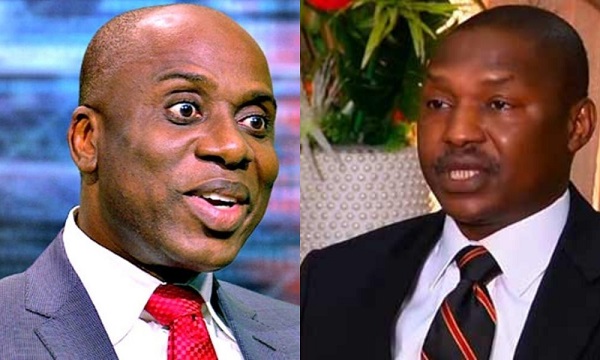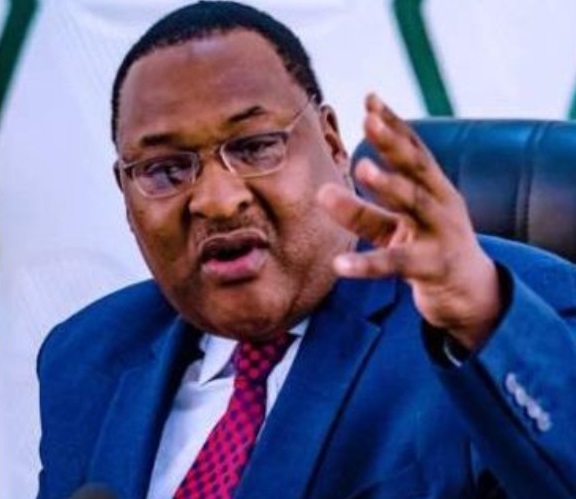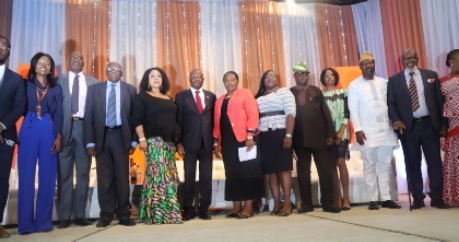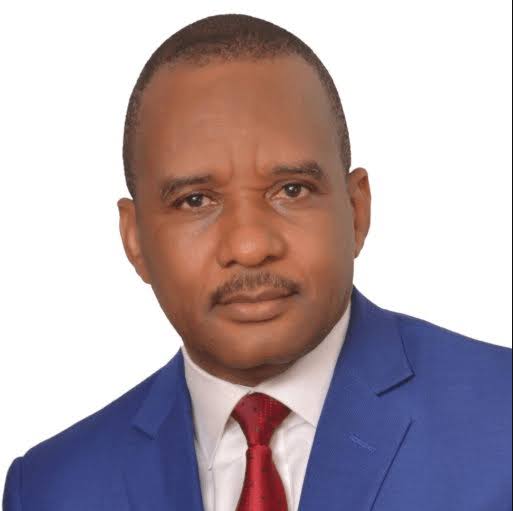Port Concession Agreement: Amaechi, Malami Trade Tackles
By Kenneth Jukpor

· Five Seaport Terminals operating with expired contracts
· New agreement could have retroactive impact – Nwagbara
A power tussle between the Minister of Transportation, Rt. Hon. Rotimi Amaechi and the Attorney General of the Federation, Mr. Abubakar Malami (SAN) has rocked the review of the concession agreement of seaport terminals in the country with five terminals in limbo with expired contracts.
Despite the Nigerian Ports Authority (NPA) submitting the reviewed concession agreement to the Attorney General in 2019, the document has been sent to and fro with the Minister of Transportation and the AGF picking loopholes at several instances. Amaechi is said to have faulted the omission of the port economic regulator as approved by the Federal Government in the reviewed agreement.
Recall that one of the key arguments of the terminal operators in court in the suit against the Nigerian Shippers’ Council (NSC) is that NSC as the Port Economic Regulator was not a party to the concession agreement and therefore not known to them but there were mentions of a regulator.
Following this, among other things, an inter-ministerial committee comprising the Ministry of Finance, Ministry of Transportation, Ministry of Justice, Bureau of Public Enterprises (BPE), Infrastructure Concession Regulatory Commission (ICRC), NPA, NSC, was set up. In spite of the committee’s position, Malami still maintains his personal position, which is not clear, our sources stated.
Sources posit that the high level of politicking which surrounded the hushed concession review also complicated the rift between the Transport Minister and the suspended NPA boss, Ms. Hadiza Bala-Usman.
There are allegations that the recent port concession review was skewed in favour of terminals, a development which is believed to have infuriated the Minister of Transportation as he continues to pick holes in the document.
Port industry observers have also expressed worry that the lingering conflict may be linked to 2023 political aspirations as Malami and Amaechi represent varying prisms in the ruling political party, All Progressives Congress (APC).
As a politician, Malami was a one-time National Legal Adviser of the then opposition political party, Congress for Progressive Change (CPC). He actively participated in the process that led to the merger of the legacy parties and marshaled the birth of APC in 2013. After the successful outcome of the 2015 presidential elections which was won by APC, Malami was nominated by the then President elect, Muhammadu Buhari to serve in the19-man transition committee of APC.
Meanwhile, the five seaports terminals which are believed to have had their contracts expired are; ENL Consortium, Ports and Cargo Handling Services Limited, Ports and Terminal Multi-services Limited (PTML), Josepdam Port Services Nigeria Limited and Associated Maritime Services (AMS).
All affected terminals have concluded necessary requirements to renew their contracts but the process is being delayed by the pending concession agreement review which NPA concluded with the terminals individually while a technical partner from World Bank operated as the mediator.
When contacted, the General Manager, Corporate and Strategic Communications of NPA, Mr. Olaseni Alakija said that it would require an official letter and an approval for him to speak on the subject.
Experts, however, have opined that the absence of queries by the affected seaport terminals might be an indication that the status quo leaves them in a cozy economic environment with regards to their lease and royalties.
Speaking with MMS Plus, on the expired contracts, a veteran maritime lawyer, Barr. Emmanuel Nwagbara explained certain conditions that could see the terminals make retroactive payments to the government.
His words: “In a case where the contract is silent on renewals, what usually happens is that the conditions that were contained in the expiring contract would continue to apply until a new contract is entered into.”
“In some rare circumstances the contract could specify that renewal terms will be different from the expiring contract terms. Hence, no matter the point of renewal, the new contract would take off on the date following the expiration of the former one. In this case, the new terms that will be reached would have a retroactive impact from the time the former contract expired.”
Nwagbara described the contractual terms for seaport terminals as ‘very complex and long’.
“There are various aspects such as infrastructure provisions, labour, pricing for services and other issues. The contract is a huge document that is compartmentalized,” he stated
According to the veteran lawyer, the delay in renewal should be a cause for worry for maritime operators and stakeholders, especially port users.
“It appears that the seaport terminals are enjoying the delay and operating on the same terms in the expiring or expired agreement because the value of the dollar is far higher than it was when the contract was entered 15 years ago,” he added.
While the hushed review has been criticized widely by industry stakeholders as the process didn’t allow for germane contributions by the port economic regulator, NSC and other crucial stakeholders, the ongoing contractual renewal for the affected terminals has featured NSC, NPA, BPE, ICRC and the terminal operators.
A member of the ongoing renewal deliberations and Director of Consumer Affairs of NSC, Mr. Cajetan Agu confirmed that Shippers’ Council, BPE, ICRC and NPA are currently engaging the affected terminals for the renewal.
When pressed to comment on the possibility of new pricing for the services of the terminals, Agu argued that there was no link between the terms of renewal and the fiscal cost of the services rendered by the seaport terminals.
His words: “If a terminal’s concession has expired, the next action to be taken is to renew it. So, that doesn’t relate to pricing. The renewal process for the affected terminals is ongoing and I’m a member of the committee which is headed by the Ministry of Transportation. The committee also has representatives from the Ministry of Justice, BPE, ICRC, NPA and the terminals.”
Meanwhile, he posited that there are some economic indicators to guide the team overseeing the renewals as they deliberate with the concessionaires to review the price upward or downward.
When contacted, the General Manager, Corporate Communications of SIFAX Group, Mr. Muyiwa Akande confirmed that the Group’s subsidiary, Ports and Cargo, has seen its contract elapse but the organization is working with the necessary authorities to conclude the renewal process.
Also speaking on this development, the Chairman, Nigerian Ports Consultative Council (PCC) Otunba Kunle Folarin said that the notice to continue operations despite terminal operators’ expired contracts must have been approved by BPA.
“There must have been conditions for renewal and stoppage. This notice must come from the organization that handed over the terminals to the private operators and that organization is the BPE. If BPE hasn’t authorized them to stop operations they have to go on because they can’t leave a vacuum in port operations. A vacuum in port operations would be counterproductive for the nation.”
“As long as there is cargo throughput, the terminals should continue to pay royalties on the throughput as well as the lease for the terminal. The terminals remain liable to pay because they are still operating,” Folarin said.
Efforts to extract reactions from the spokesperson at BPE and ICRC were futile until press time.







